The month of November heralded the arrival of guests into the beautiful city of Douala in Cameroon for the 5th African Writers Conference. This year’s conference was themed: Writing Africa the Nexus of Hope. The Conference began on Thursday 4th of November, 2022 with a writers’ workshop at FNAC, Bali (Super U), Douala, Cameroon. The workshop was anchored by three speakers who spoke on different genres of literature.
Day 1: Creative Writers’ Workshop
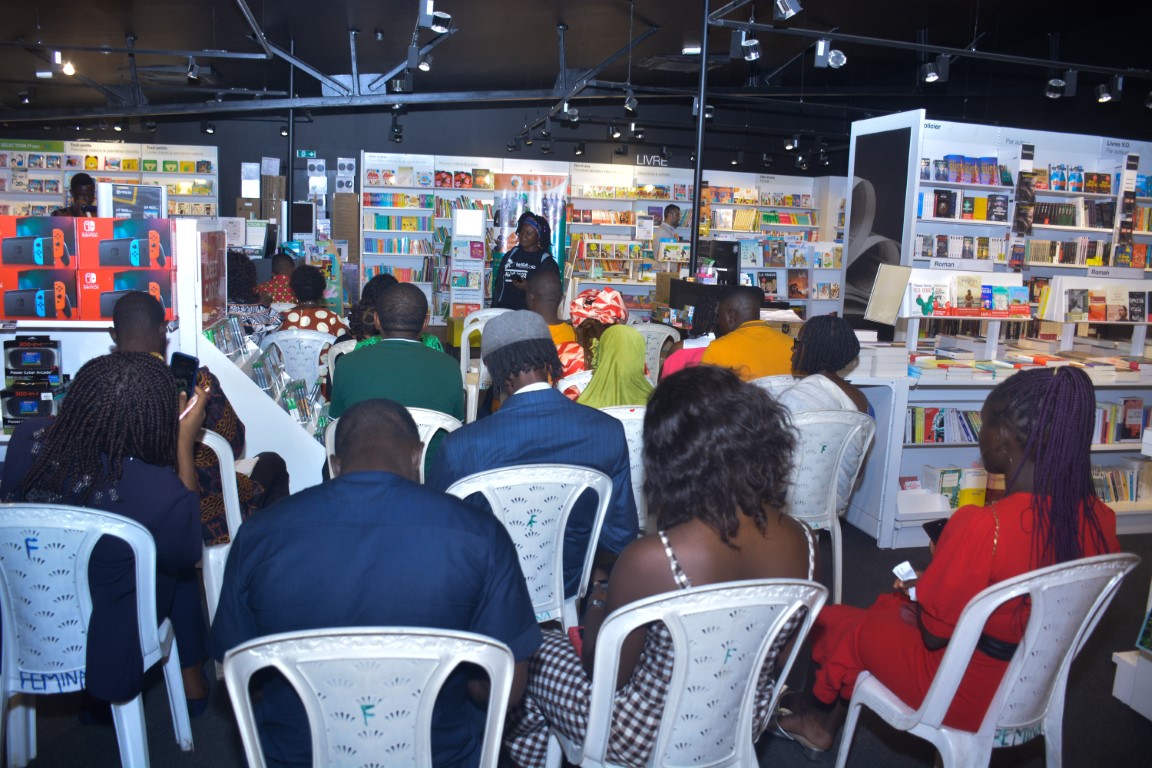
Ray Ndebi, a writer and literary analyst spoke on How to Write a Good Short Story. In his words, a good short story begins with a hook; something to draw your readers close to the very end. Because short stories are limited by the number of words, the author must choose their sentences carefully. Every sentence must be important to the goal of the short story. He ended by proclaiming that there is no single best way to end a short story and it does not always need a happy-ever-after ending. A cliffhanger to keep the readers pondering can be a great way to end a short story too.
Blessing Amatemeso spoke on Children’s Literature. She began by elucidating the importance of children’s literature. Children’s literature is a veritable tool for education. In fact, there is no education without children’s literature. In children’s literature, education and entertainment cannot be separated as children learn from every art they are exposed to. Children’s literature is a means to groom children into the adults we desire for our society. At the extreme, children’s literature can also be used as a means of indoctrination. She noted that it is a broad spectrum as children of different age groups have different interests and capacities.
She went on to outline the features of children’s literature, which include entertaining, easy-to-understand, and educative. In response to the question, ‘What theme can one write on in Children’s literature’, she said anything can be a theme, from personal hygiene, to respect, obedience, and even wars. Children are exposed to the events happening around them locally and globally through the media and children’s literature is a means to educate them and answer their questions.
Nnane Ntube, a poet and Coordinator of WSA-Cameroon gave the audience an insight into poetry. Here are a few lessons from her session:
– The first two lines of poetry must not feed your reader with information. Those lines must be captivating and should take your reader on a journey.
– Poetry is like pitching. You have to pass your grand dream and ideas to impress your readers with few words.
– The essence of poetry is not to confuse your reader or show your grasp of words. It should provoke a reader’s imagination.
– Use concrete words. Avoid using too many adverbs.
– A poem should touch the heart, mind, and other sense organs.
– A poet must understand literary and sound devices.
She ended the session by saying, ‘in literature, do not seek to sound like someone else. Be yourself because you are already someone. Your work can only be peculiar in your context.’
Day 1: Poetry Night
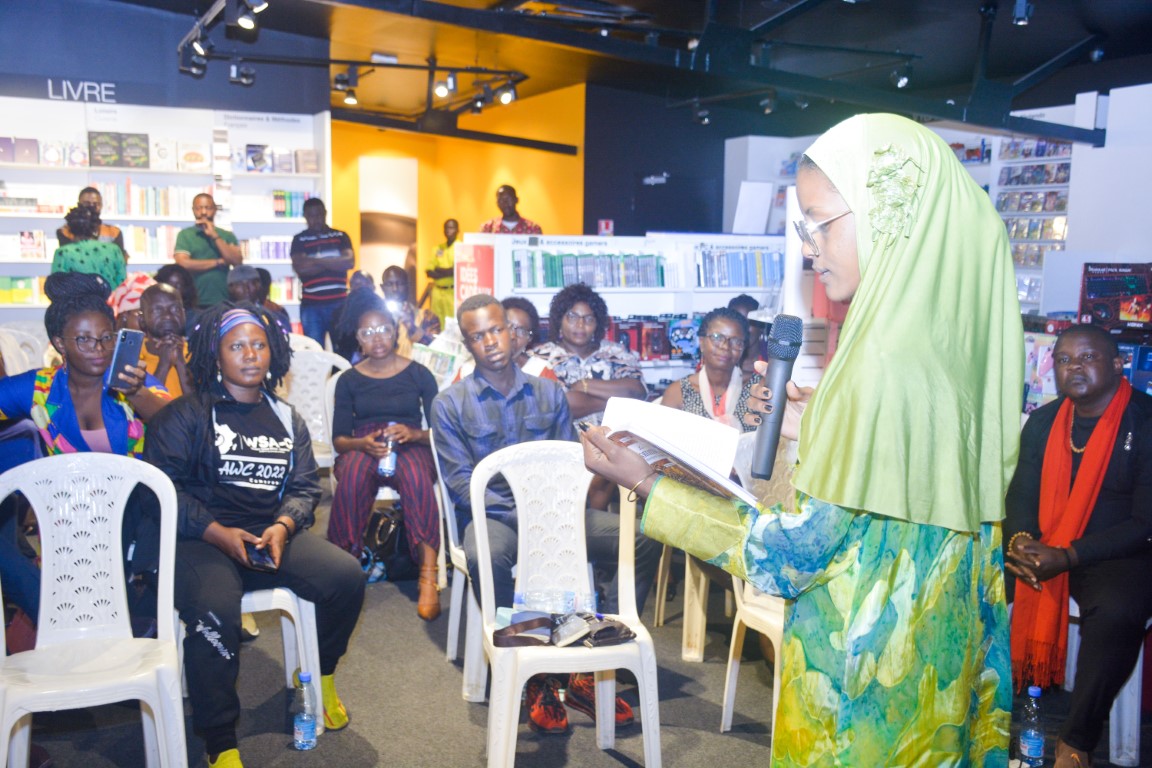
The first day of the conference ended with the poetry night. A poetry rendition by Danielle Eyango left the audience captivated. A performance by Grimo had the audience singing and dancing while basking in the beauty of words. Country Pikin (Willaim Bemsii) and Mottani also took to the stage and gave the audience something to think about. The session came to a close with a book reading of Kelly Yemdji’s ‘Les Hommes se mangent la queue.’
Day 2: Writers Mingle 5
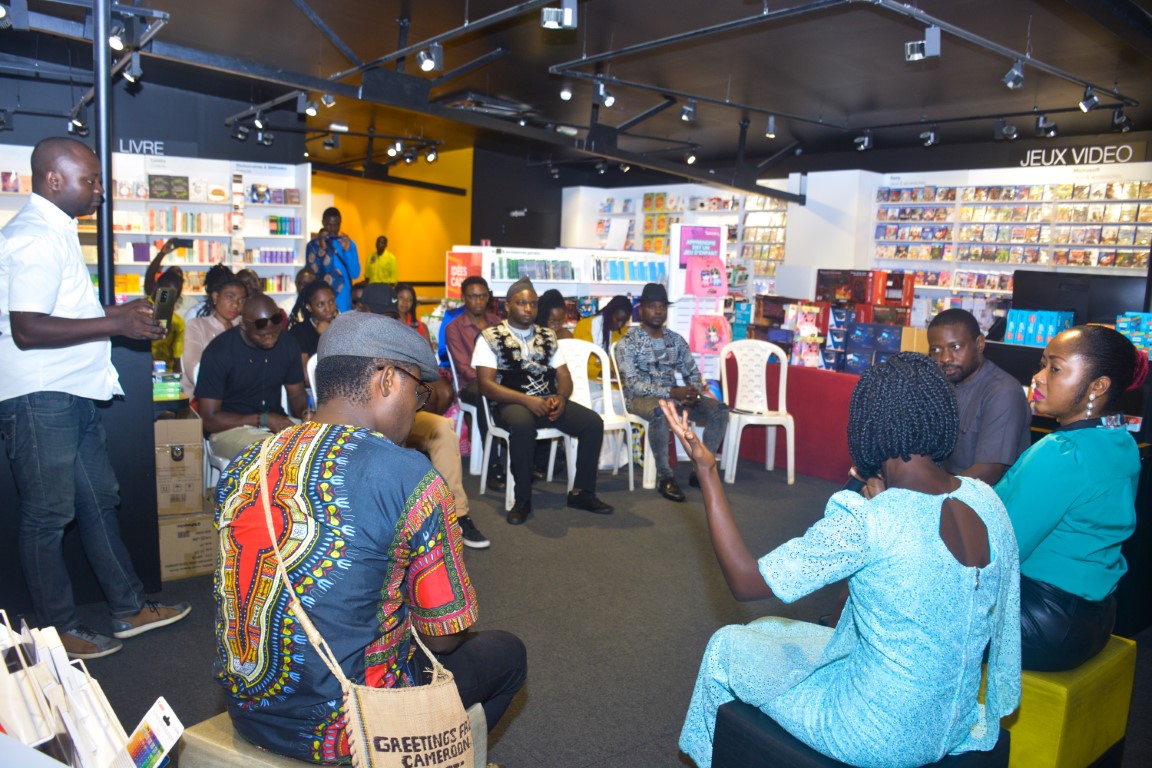
The second day of the conference brought to life the 5th Writers Mingle titled: Is there hope for African Literature? The panel consisted of Danielle Eyango, Mb Mbutoh, and Kelly Yemdji. It was moderated by Anthony Onugba who opened the session with the question, ‘Is there hope for African Literature?’
Danielle was of the view that “…African literature is an ill-defined concept. You can’t have a single type of writing that is called African literature but let us assume that we mean literature from people of African descent. We are not at the level of asking if there is hope. Because there is no way one would talk about literature in the world today and not mention an African, just like in football. The question now should be how can we grab the dynamics of our literature and maintain this dynamic?”
Kelly Yemdji believes that “…when transposing the definition of African Literature to our context, production is not the problem but the quality of our editions and equally the distribution process. If these are looked at, everything will move smoothly and yes, there will be hope because solutions are gradually being searched for.”
MD Mbutoh thinks “…it’s appropriate to ask the question because we have to stop people from telling our stories for us… There is hope if we tell our stories the way we want them to be told… asking if there’s hope for African Literature is asking if there’s hope for who we are……An important step in telling this story is for us to publish our stories ourselves. When books are published, the authors only enjoy 15% of the profit. We have the riches but we do not enjoy them… Hope begins with education. When we share their name, they share the glory. A slavemaster gives a slave the name he wants. The education you give your children will determine what they will tell themselves tomorrow… Yes, there’s hope if we tell our stories and draw strategies to pull people to listen to these stories of ours.”
Question 2: There are schools of argument that say:
- We should expand on African literature by writing about our culture in our dialect
- Another school believes in afro-futurism
- The third school argues that we should write about modernism.
What’s your take on the issue of our voices being lost amidst these different schools of thought?
MD Mbutoh responded thus… “this argument began long before Ngugi. China Achebe was caught in this argument and said, ‘There is nothing wrong with the language…
You get to tell the world about yourself in a language they understand. When they understand you, you can now gradually and unapologetically switch to your mother tongue…’”
Kelly Yemji believes that it would be unwise to move directly to maternal African languages. The inherited languages are the communal languages. She made an example of herself. If she wrote in her mother tongue, even people from neighbouring communities might not understand her. If they can’t understand her, she cannot pass a message and touch their hearts.
For Danielle… “The question brings us back to problems of publishing and problems of translating. An Interviewer once asked Denzel Washington why he took a black director for one of his movies and he responded that it was because only a black person could have brought to life what he wanted. Not because of the race but the culture. A white man would not know the smell of a hot comb because he may have never experienced it and other contextual scenes in the movie. When works are translated by people who are not familiar with the context in which the work was written, the meaning sometimes gets lost. Grabbing hope starts with us writers. Authors must be willing to put in the work to produce quality text. When you produce quality texts, the publishers will accept to publish your work even if you are rejected at first.
Question 3: What do you think the solution can be?
Kelly: As an author, what I’ve understood after two publications is that we have to return to our roots; there should be a print of who we are and where we come from; we have to question and move out of our comfort zones. We are not all the same, so every writer should have something peculiar to him/her.
Danielle: “… we can’t move forward alone. Synergy is important. There has to be a synergy of authors from different countries and it is likely to effectively draw the attention of publishers to us…”
MD: “…one way forward is to write about something the people will relate to… make your people your first fans. If they can’t read, transform the work into audio and they will listen. We need to start from the origin…”
Lastly, there were various questions from the audience, One question worthy of note is: “What is quality text?”
Danielle: There is no single definition for what quality text is but it begins with grammar, conjugation, spelling, and accuracy of your information, among other things.
In all, there is hope for African Literature if a certain number of issues are taken care of as mentioned above and it was on this note that Anthony Onugba ended the Writer’s Mingle which was enriching and inspiring.
Day 2: Discussing Cameroonian Literature
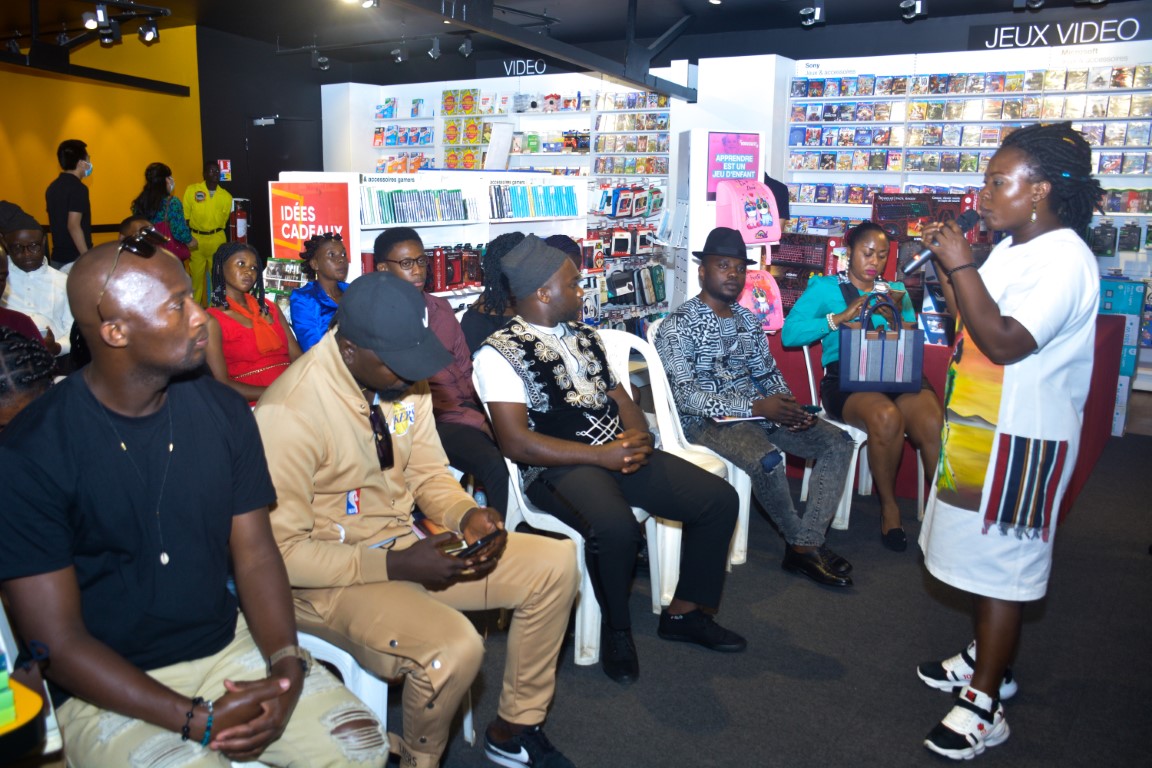
Shortly after, Nnane Ntube led the discussion on Cameroonian Literature which is, on one hand, Francophone and on the other Anglophone. The different contributions from the audience were channelled into one voice which says there needs to be synergy amongst all involved in the writing, production and consumption process… Everyone must play a role to make Cameroon Literature more interesting and engaging than it is now.
It was on this note that Day 2 ended and the stage was set for D-day itself, the African Writers Conference.
Day 3: Conference Day
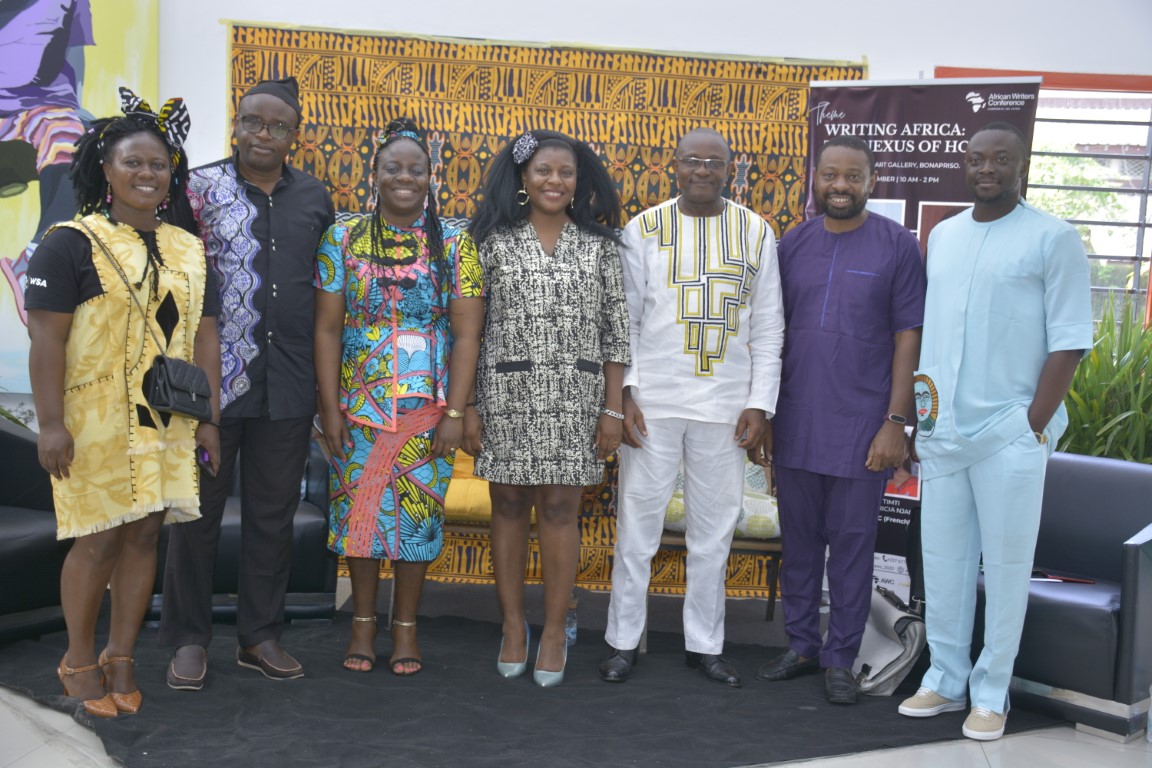
The conference was held at the Annie Kadji Art Gallery, Bonapriso, Duoala on the 5th of November, 2022. It was in three parts; the keynote speech, the panel discussion and the announcement of the African Writers Awards with a brief presentation interlude by Grimo. The conference was attended by participants both onsite and online. The event was anchored by Stephanie Darah (for English) and Autricia Timti (for French). They welcomed the guests and served as translators so neither the English speakers nor French speakers were left behind.
A Welcome speech was delivered by Nnane Ntube the Coordinator of WSA-Cameroon and host of the African Writers Conference. She then called upon Mr Anthony Onugba who gave a brief expose and why the African Writers conference was initiated.
The Keynote Speaker, Professor Kelvin Ngong Toh, a professor of African Literature and civilizations, was introduced and then given the stage. He started with a challenge to writers to know Africa. He states that to write Africa, it is good we know Africa.
He went on to explain the various stages of African Literature
- Telling Africa: oral story.
- Written story:
- Typing story
He explained that African literature has been majorly literature of mimesis. Oral stories contained the tradition and education of a people. As written African literature developed, it chronicled the socio-political scenario in different countries on the continent.
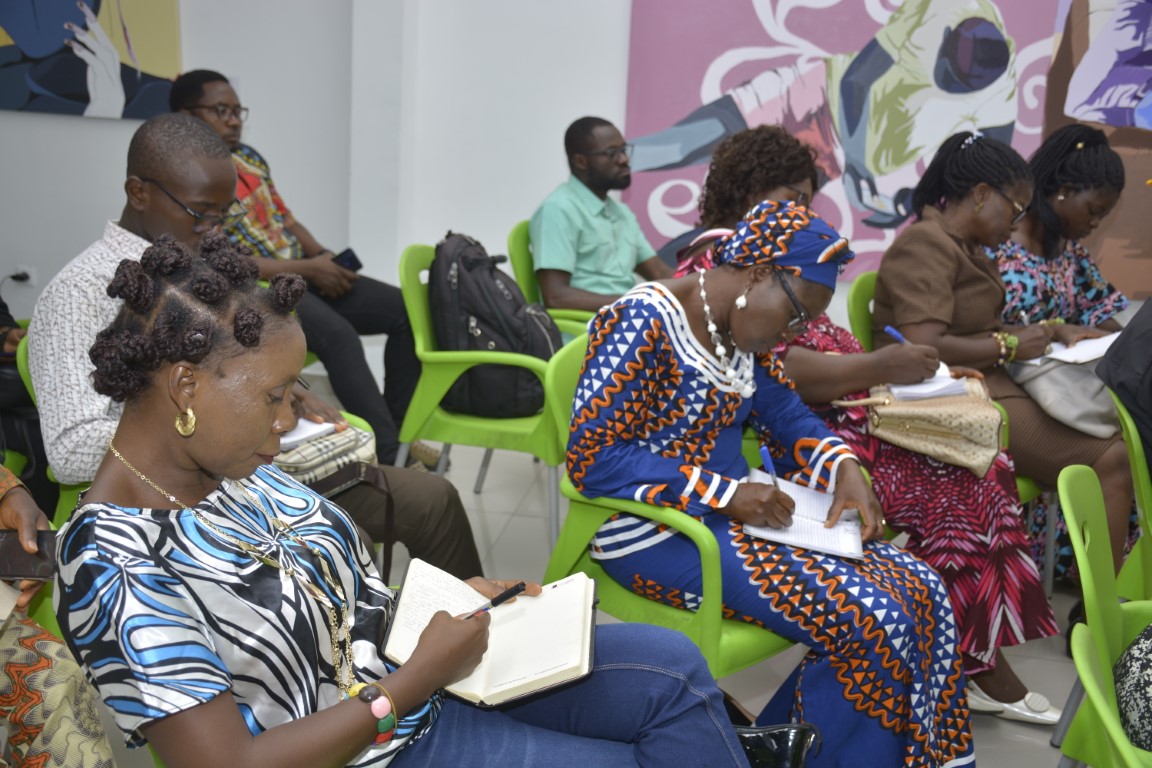
He went on to talk about how the African culture has also evolved with the literature. He spoke about the use of languages both inherited and learnt in literature. He also stated that for us to write, we need to overcome fear; fear of who will read us and who will like what we’ve written.
He admonished the audience to get rid of some wrong notions about writing such as writing being for the university community. When all is said and done, the writers’ conference was a symbol of hope.
The end of this session was punctuated by a performance by Grimo.
The panellists, for the second part of the conference, were then invited to join the keynote speaker on the stage. They were Armelle Touku, an author of Children’s literature, Rahael Ngong Manang, a Cameroonian freelancer and certified professional editor, and Professor Fotsing Mangoua Robert, a professor of African Literature.
The session was anchored by Mr Kwoh Elonge; a Cameroonian researcher, writer, comedian and journalist.
Question 1: How are you able to retell African literature?
Armelle: Adrinka, the outfit I work with, is out to publish stories written for children because the stories we tell our children form the basis of who they become. It builds their sense of worth to see stories that reflect their reality. We shouldn’t be talking about snow when we have dust and mud. Children should be able to connect with the stories they hear.
Prof Fotsing: Africa has been treated as a monolith. How to write about Africa by Binyavanga Wainaina and The danger of a single story by Chimamanda Ngozi tell us in detail how this is done and how to avoid it. African literature has been equated to stories of darkness, poverty, starvation and corruption. For the narrative to change, Africans must continue to write about the Africa they know and want to be known.
Question 2: What will you recommend to writers for diversity?
Prof Kelvin: Unity of Africa doesn’t only have to occur through politics. The AWC is a means of uniting Africa through literature. Nations are narration; every tribe in Africa is a nation with their own story. African authors have to ask themselves pertinent questions; Whom am I writing for? Why do I have to dilute my work? African writers need to be actors, not reactors. We need to elevate African literature as a literature of mimesis. When African literature reflects the writers’ culture and language, we get a diverse art form. We don’t need to seek diversity elsewhere because we are diverse already.
Rahael: An editor must know their audience. There is nothing like a general audience. How do you address someone you don’t know? How far a text can go depends not only on the quality of the text written by the author but by the presentation by the editor. An editor can change the destiny of a literary work. Africa needs trained editors. You can’t effectively publish without editors. Make no mistake, editing is not synonymous with proofreading and spotting grammatical errors. Editing is a highly technical discipline. It has many aspects which are not known. Trained African editors and publishers will go a long way in promoting diverse literature.
The session ended with the panellists answering questions from the audience.
The African Writers Awards
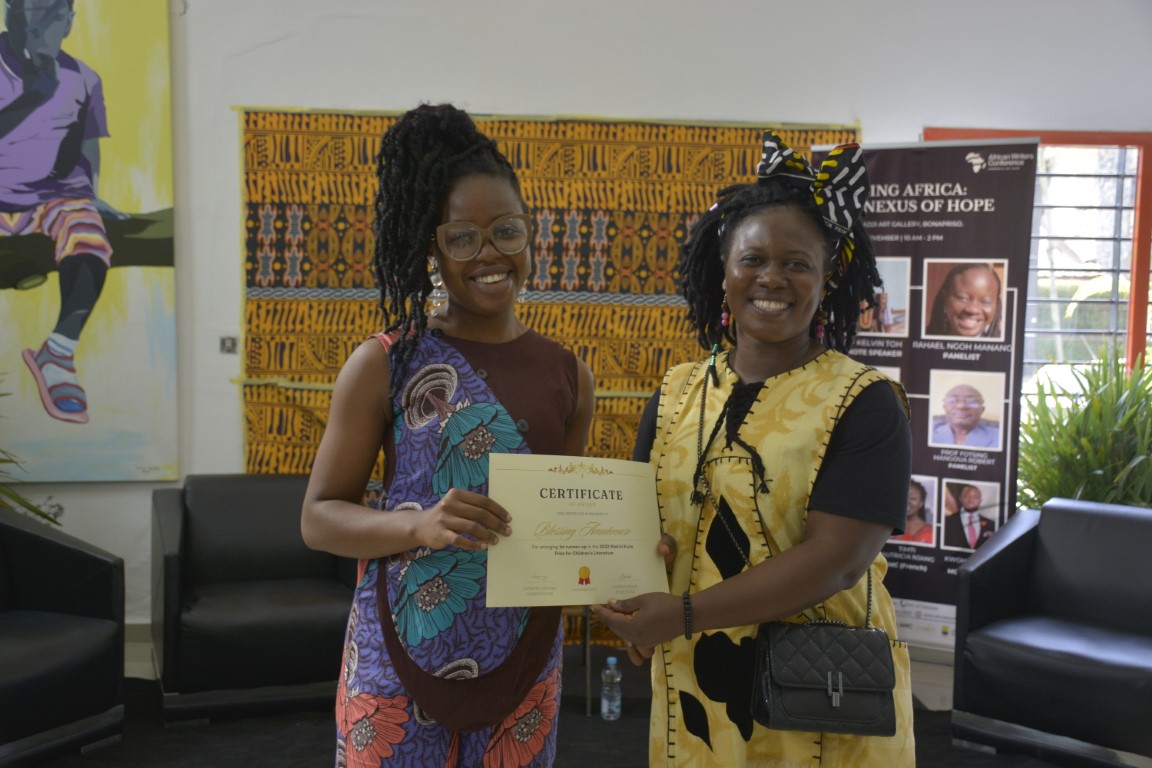
The third session of the conference was the announcement of the winners of the African Writers Awards, the Wakini Kuria Prize for Children’s Literature, and the African Teen Writers Awards.
African Writers Award:
Creative Non-Fiction:
Let My People Go by Britney Muoghalu (Nigeria)
Drama:
Dusk To Dawn by Gloria Akayi Asoloko (Nigeria)
Poetry:
The Slums of Mbayani by Temwani Mgunda (Malawi)
Wakini Kuria Prize for Children’s Literature
Beans cannot be vegetables by Ogbu Eme (Nigeria) -1st place
Siki and the bicycle by Blessing Amatemeso (Nigeria) – 2nd place
Grandma’s Needlework by Joshua Robertson (Ghana) – 3rd place
African Teen Writers Award
Short Stories:
My Juicy Life by Testimony Odey (Nigeria)
Poetry:
It gets Lonely by Nifemi Emmanuel (Nigeria)
Following the awards, the panellists were also given awards of Appreciation.
The first bilingual African Writers Conference came to a close with light refreshments and lots of pictures.
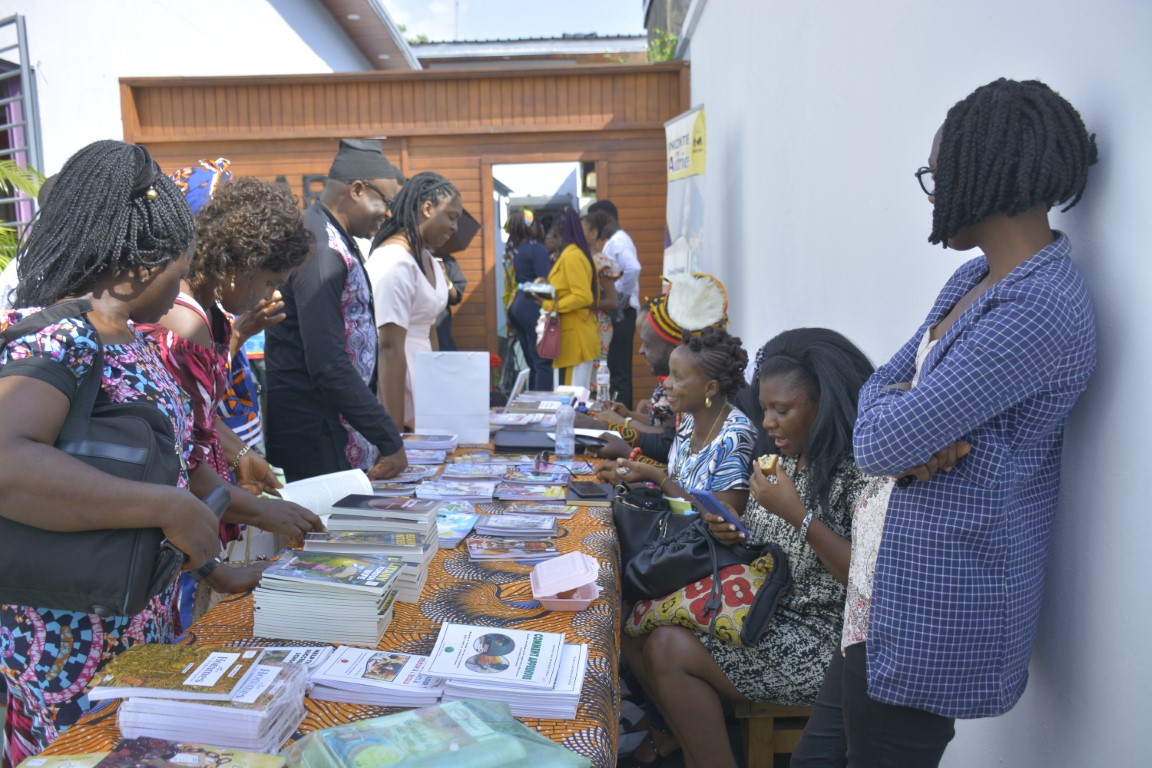
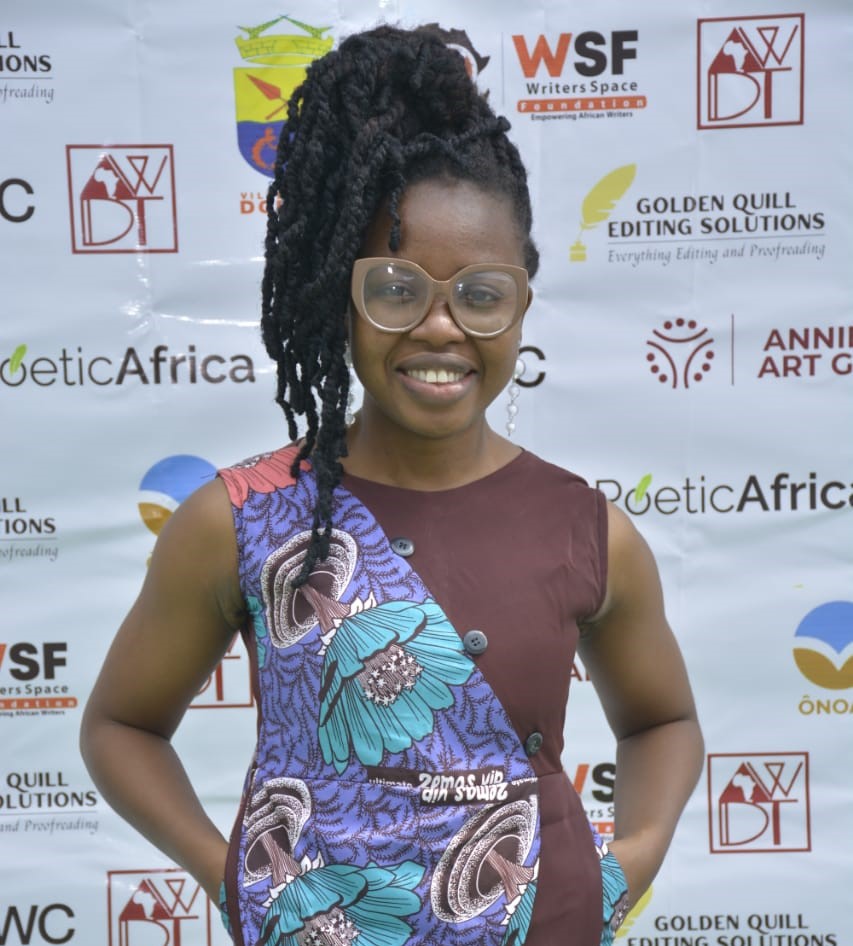 Blessing Amatemeso, a native of Rivers State in South-South Nigeria, is a creative writer whose children’s literature, poetry, and short stories have been published in various magazines including Writers Space Africa (WSA) magazine. She is a lover of art in all forms but most especially written art for its capacity to greatly affect the mind. Blessing devotes her time promoting literature on the African continent. She maintains the view that literature is an essential component of a well-rounded education.
Blessing Amatemeso, a native of Rivers State in South-South Nigeria, is a creative writer whose children’s literature, poetry, and short stories have been published in various magazines including Writers Space Africa (WSA) magazine. She is a lover of art in all forms but most especially written art for its capacity to greatly affect the mind. Blessing devotes her time promoting literature on the African continent. She maintains the view that literature is an essential component of a well-rounded education.
Blessing has served on the editorial board of various magazines including Healing Stream, Touch Magazine, and Syringe. She has also served on the Executive Board of the WSA-Nigeria literary society as the welfare officer. Additionally, Blessing was awarded the 2022 Wakini Kuria Prize for Children’s Literature as the award’s first runner-up.
Blessing is a final-year medical student at the University of Calabar, an advocate for healthy lifestyles and a sports lover who enjoys a wide variety of activities.
Read about the previous conferences below
2021 African Writers Conference
2020 African Writers Conference
2019 African Writers Conference
2018 African Writers Conference








Lovely to see the success of such a vital initiative. Great stuff and congratulations to both the team that put this together as well as the African Writers Award winners. Kudos!